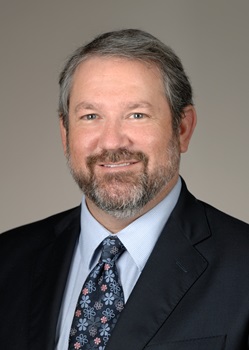Announcement: 40th MD/PhD Student Conference
We are thrilled to announce that the National MD/PhD Conference will return in July 10-12, 2026.
It is always our privilege and joy to host a conference that brings together the best and brightest of our country’s future physician scientists. After our pause this year due to the uncertain funding landscape, we are excited to invite our national community of MD/PhD trainees, PSTP directors, and physician scientists to Breckenridge in 2026.
For any questions or concerns, please reach out to us at: [email protected]
-University of Colorado 40th Annual MD/PhD Student Conference Committee
Welcome to the 40th Annual MD-PhD National Student Conference!
Breckenridge Resort (9,600 feet)
July 10-12, 2026
 Azra Raza, MD, is the Chan Soon-Shiong Professor of Medicine and Director of the Edward P. Evans Foundation MDS Center at Columbia University. A practicing oncologist seeing 30-40 cancer patients weekly, she also directs a cancer research lab. The recipient of three serial endowed chairs, Raza has collected >60,000 longitudinally drawn blood and marrow samples from thousands of her patients with preleukemia and acute myeloid leukemia. She met with President Biden to plan the Cancer Moonshot and with President Bill Clinton for 3-day Breakthroughs in Science and Technology Retreat. Describing her groundbreaking ideas in the highly acclaimed bestselling book, THE FIRST CELL: And the human costs of pursuing cancer to the last, Raza is bent upon shifting the treatment focus from trying to kill every last cancer cell to finding the first and preventing cancer from developing altogether. Raza is the Founder and Director of the Scientific Advisory Board of The First Cell Therapeutics Inc (TFCTx). The owner of thousands of books in Urdu and English, she co-authored GHALIB: Epistemologies of Elegance, dedicated to translation and interpretation of poetry.
Azra Raza, MD, is the Chan Soon-Shiong Professor of Medicine and Director of the Edward P. Evans Foundation MDS Center at Columbia University. A practicing oncologist seeing 30-40 cancer patients weekly, she also directs a cancer research lab. The recipient of three serial endowed chairs, Raza has collected >60,000 longitudinally drawn blood and marrow samples from thousands of her patients with preleukemia and acute myeloid leukemia. She met with President Biden to plan the Cancer Moonshot and with President Bill Clinton for 3-day Breakthroughs in Science and Technology Retreat. Describing her groundbreaking ideas in the highly acclaimed bestselling book, THE FIRST CELL: And the human costs of pursuing cancer to the last, Raza is bent upon shifting the treatment focus from trying to kill every last cancer cell to finding the first and preventing cancer from developing altogether. Raza is the Founder and Director of the Scientific Advisory Board of The First Cell Therapeutics Inc (TFCTx). The owner of thousands of books in Urdu and English, she co-authored GHALIB: Epistemologies of Elegance, dedicated to translation and interpretation of poetry.
 Alexander J Mentzer is a Principal Investigator at the Centre for Human Genetics, University of Oxford, and a Consultant Physician in Infectious Diseases and General Medicine at the John Radcliffe Hospital, Oxford, UK. He is a recognised leader in understanding the genetic basis of human susceptibility to infectious disease, having published over 200 peer-reviewed articles over the last ten years in major journals including Nature, Science, Nature Medicine and Cell and was recently awarded the BIA Barnett-Christie Prize for the most promising infection research in the UK.
Alexander J Mentzer is a Principal Investigator at the Centre for Human Genetics, University of Oxford, and a Consultant Physician in Infectious Diseases and General Medicine at the John Radcliffe Hospital, Oxford, UK. He is a recognised leader in understanding the genetic basis of human susceptibility to infectious disease, having published over 200 peer-reviewed articles over the last ten years in major journals including Nature, Science, Nature Medicine and Cell and was recently awarded the BIA Barnett-Christie Prize for the most promising infection research in the UK. His research group spearheads innovative methods to disentangle the interactions of host genetics, infection exposure and disease outcomes using data from massive biobanks and bespoke Multiplex Serology platforms. Much of his work centres on understanding the molecular mechanisms of human leukocyte antigen (HLA) variation and disease outcomes, a problem that has puzzled scientists for decades. Then, through his regular management of patients on the wards, he strives to take discoveries from large scale genomic and transcriptomic datasets, through to improved patient benefit either through near-patient diagnostic testing, or monoclonal antibody development.
He is also deeply committed to genomic capacity building in Low-to-Middle Income Country settings, collaborating with new and established scientists in countries like Kenya, Uganda, Mexico, and Indonesia, where he helps train teams in bioinformatics and establish funding and systems for genomic research important to local scientists and communities. He is also passionate about education locally, leading several teaching modules for medical and science Masters courses, integrating concepts of host genetic variability into course content to inspire the clinicians of tomorrow for novel ways to approach science.
Dr Mentzer undertook an early degree and Masters in Biochemistry and Molecular Medicine in Imperial, before completing Medicine in University College London and combining his clinical training with a Wellcome-funded DPhil/PhD with Professor Sir Adrian Hill forming collaborative networks around the world. He spends much of his spare time outdoors keeping fit, or travelling with his family.
 Dr. Christopher Bartley is an early career Principal Investigator at the National Institute of Mental Health (NIMH) where he serves as the Chief of the Translational Immunopsychiatry Unit (TIU) and a member of the editorial board of Biological Psychiatry.
Dr. Christopher Bartley is an early career Principal Investigator at the National Institute of Mental Health (NIMH) where he serves as the Chief of the Translational Immunopsychiatry Unit (TIU) and a member of the editorial board of Biological Psychiatry.
Dr. Bartley received his PhD with distinction from Yale University and subsequently graduated cum laude from Yale School of Medicine, where he was awarded the Selma and Karl Folkers Prize for excellence in biomedical research. During his residency in Adult Psychiatry at the University of California San Francisco (UCSF), he was awarded the Outstanding Resident Award by the NIMH. Upon completion of his residency training, he was awarded the Edwin F. Alston Award for Leadership in Psychiatry by the UCSF Department of Psychiatry.
He continued at UCSF as a research fellow in behavioral immunology supported by a Hanna H. Gray Fellowship (Howard Hughes Medical Institute). During his research fellowship, he was an inaugural recipient of the Deeda Blair Research Initiative for Disorders of the Brain Award (Foundation of the National Institute of Health) to support the development of his immunopsychiatry research program.
In 2022, he joined NIMH and founded the TIU, a reverse translational research program that employs basic, translational, clinical, and bioinformatic approaches to identify molecules, cells, and circuits implicated in neuropsychiatric illness.
Psychiatric illnesses appear to arise from distributed network dysfunction rather than focal lesions of the brain. Accordingly, one focus of the TIU is antibody repertoire profiling, as antibodies are capable of inducing precise yet distributed neural lesions. By integrating antigen identity with single-cell, anatomic, and circuit expression data, the TIU is working to uncover and model the neurophysiological processes that underlie neuropsychiatric illness—starting with psychotic spectrum disorders.
 Joshua A. Gordon, M.D., Ph.D., is the Chair of the Department of Psychiatry at Columbia University. This is his second stint at Columbia, having been a member of the faculty from 2004 to 2016, where he conducted research, taught students and residents, and maintained a general psychiatry practice. Immediately prior to re-joining Columbia, Dr. Gordon served as the Director of the National Institute of Mental Health (NIMH) from 2016 until 2024, where he oversaw the principal US Government agency responsible for mental health research. Dr. Gordon received M.D. and Ph.D. degrees in neuroscience from the University of California, San Francisco, and completed a psychiatry residency and research fellowship at Columbia University prior to joining the faculty in 2004.
Joshua A. Gordon, M.D., Ph.D., is the Chair of the Department of Psychiatry at Columbia University. This is his second stint at Columbia, having been a member of the faculty from 2004 to 2016, where he conducted research, taught students and residents, and maintained a general psychiatry practice. Immediately prior to re-joining Columbia, Dr. Gordon served as the Director of the National Institute of Mental Health (NIMH) from 2016 until 2024, where he oversaw the principal US Government agency responsible for mental health research. Dr. Gordon received M.D. and Ph.D. degrees in neuroscience from the University of California, San Francisco, and completed a psychiatry residency and research fellowship at Columbia University prior to joining the faculty in 2004.
Dr. Gordon’s research employs an integrative systems approach towards understanding the neurobiology underlying working memory and its disruption by genes of relevance to schizophrenia. Utilizing a range of modern neuroscience techniques, including in vivo neurophysiology and optical and pharmacological circuit manipulation, his lab has demonstrated a crucial role for oscillatory neural dynamics in the long-range functional connectivity in the hippocampal-prefrontal circuit in rodents. Through studying mice carrying mutations that, in humans, confer risk for schizophrenia, he has developed and tested causal hypotheses for how genetic variants confer risk for disease. By disrupting these processes and then testing pharmacological and neuromodulatory approaches to reversing this disruption, his work has laid the groundwork for potential translation.
Dr. Gordon is a member of the National Academy of Medicine. His work has been recognized by several prestigious awards, including the NARSAD Young Investigator Award from the Brain and Behavior Research Foundation; the Rising Star Award from the International Mental Health Research Organization; the A.E. Bennett Research Award from the Society of Biological Psychiatry, and the Daniel H. Efron Research Award from the American College of Neuropsychopharmacology.
TIME | EVENT | LOCATION |
9:30 AM – 12:30 PM | Registration | Atrium |
12:30 PM – 2:00 PM | Lunch Keynote Speaker: Dr. Gordan Sponsored by the CU Cancer Center | Elevation Ballroom |
2:00 PM – 3:00 PM | Oral Presentations: Immunology & Microbiology General Medicine & Physiology | Elevation Ballroom Blue Spruce/Aspen |
3:00 PM – 3:30 PM | Coffee Break | Atrium |
3:30 PM – 4:30 PM | Disability in Medicine: Dr. Meeks Bioethics: TBA (Session A) | Disability in Medicine: Elevation Ballroom Bioethics: Blue Spruce/Aspen |
4:45 PM – 5:45 PM | PSTP Panel (Session A) Sponsored by the CU Division of Medical Oncology | Elevation Ballroom |
5:45 PM – 7:15 PM | Dinner Keynote Speaker: Dr. Bartley Sponsored by the CU Department of Radiation Oncology | Elevation Ballroom |
7:15 PM – 7:30 PM | Poster set up | Forest/Atrium |
7:30 PM – 9:00 PM | Poster Session I & Happy Hour Sponsored by the CU Department of Anesthesiology | Forest/Atrium |
TIME | EVENT | LOCATION |
7:30 AM – 8:30 AM | Breakfast | Elevation Ballroom |
8:30 AM – 11:30 AM | Funday Activities | Various |
11:30 PM – 1:00 PM | Lunch PSTP Networking Sponsored by the CU Division of Plastic and Reconstructive Surgery | Elevation Ballroom |
1:00 PM – 1:45 PM | PSTP Panel (Session B) | Elevation Ballroom Blue Spruce/Aspen |
2:00 PM – 3:00 PM | Keynote: Dr. Mentzer | Elevation Ballroom |
3:00 PM – 3:30 PM | ASPA Presentation | Elevation Ballroom |
3:30 PM – 4:00 PM | Coffee Break | Atrium |
4:00 PM – 5:00 PM | Disability in Medicine: Dr. Meeks Bioethics: TBA (Session B) | Disability in Medicine: Blue Spruce/Aspen Bioethics: Elevation Ballroom |
5:15 PM – 6:45 PM | Poster Session II & Happy Hour Sponsored by the Colorado Clinical and Translational Sciences Institute (CCTSI) | Forest/Atrium |
7:00 PM – 9:00 PM | Dinner Keynote Speaker: Dr. Raza Sponsored by FAER | Elevation Ballroom |
TIME | EVENT | LOCATION |
8:30 AM – 9:30 AM | Breakfast | Elevation Ballroom |
9:30 AM – 10:30 AM | Oral Presentations: Bioengineering & Medical Imaging Cancer Biology | Blue Spruce/Aspen Elevation Ballroom |
10:45 AM – 11:45 AM | Oral Presentations: Neuroscience Molecular Biology & Pharmacology | Blue Spruce/Aspen Elevation Ballroom |
12:00 PM – 1:00 PM | Lunch & Closing Remarks | Elevation Ballroom |


